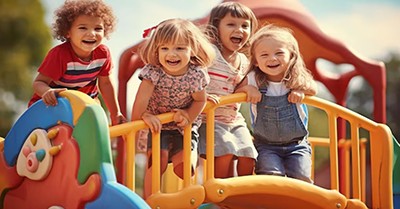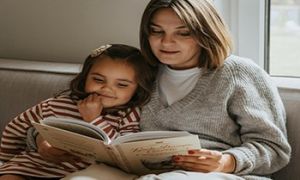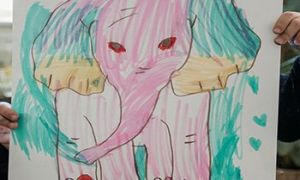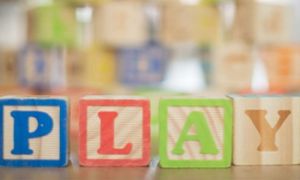Pedagogy in early childhood isn’t just about teaching—it’s about how we nurture, guide, and co-construct learning with our youngest citizens. It’s the heartbeat of early education, where relationships, play, and emotional safety shape every moment.
What Is Pedagogy in Early Childhood?
Pedagogy in early childhood refers to the philosophy, methods, and intentional practices educators use to support children's learning and development. It’s grounded in:
- Child development theory (e.g., Piaget, Vygotsky, Bronfenbrenner)
- Values and beliefs about children’s rights, agency, and capabilities
- Responsive, play-based, and inquiry-driven approaches that honor each child’s voice and lived experience
Core Principles
- Child-Centered: Learning is led by children’s interests, strengths, and curiosities.
- Relational: Trusting relationships are the foundation for emotional and cognitive growth.
- Holistic: Pedagogy supports physical, emotional, social, and cognitive development.
- Culturally Responsive: Practices reflect and celebrate diverse identities and family contexts.
- Emotionally Intelligent: Educators attune to children’s emotional states and scaffold regulation through connection.
Pedagogical Approaches in ECCE
| Approach | Description |
|---|---|
| Play-Based Learning | Children explore, imagine, and problem-solve through free and guided play |
| Inquiry-Based | Children ask questions and investigate the world around them |
| Socio-Cultural | Learning is shaped by relationships, culture, and community |
| Constructivist | Children build knowledge through active exploration and reflection |
Pedagogy in early childhood is how we listen to children without words, how we design environments that speak safety, and how we embed dignity into every routine. It’s the difference between compliance and empowerment.
Common Pedagogical Approaches in Early Childhood
| Approach | Core Features |
|---|---|
| Play-Based Learning | Children learn through exploration, imagination, and social interaction. Play is seen as the primary vehicle for development. |
| Child-Centered Learning | Educators follow children's interests, strengths, and curiosities, fostering autonomy and agency. |
| Inquiry-Based Learning | Children ask questions and investigate topics, promoting critical thinking and problem-solving. |
| Constructivist Approach | Learning is actively constructed by the child through hands-on experiences and reflection. Inspired by Piaget and Vygotsky. |
| Socio-Cultural Approach | Emphasizes the role of relationships, culture, and community in shaping learning. Learning is co-constructed. |
| Reggio Emilia Approach | Focuses on the environment as the “third teacher,” documentation of learning, and expressive arts. Deeply values child voice. |
| Montessori Method | Structured independence through self-directed activity, hands-on materials, and mixed-age classrooms. |
| HighScope Approach | Uses a “plan-do-review” cycle to support active learning and intentional teaching. |
| Waldorf/Steiner Education | Emphasizes rhythm, imagination, and holistic development through storytelling, nature, and artistic expression. |
| Forest Schools | Outdoor, nature-based learning that fosters resilience, curiosity, and ecological awareness. |
EYLF Alignment
These approaches align beautifully with the Early Years Learning Framework (EYLF) principles:
- Secure, respectful, and reciprocal relationships
- Partnerships with families
- High expectations and equity
- Respect for diversity
- Ongoing learning and reflective practice
Pedagogy is one of the most powerful forces shaping a child’s development—it’s not just about what we teach, but how we relate, respond, and co-create learning with children. In early childhood, pedagogy directly influences every domain of development: cognitive, emotional, social, and physical.
How Pedagogy Impacts Child Development
Cognitive Development
- Active learning strategies (e.g. play-based, inquiry-led) stimulate brain development and executive functioning.
- Pedagogies grounded in constructivist theory (like Piaget’s) encourage children to make meaning through exploration, boosting memory, attention, and problem-solving.
Language & Communication
- Dialogic pedagogies—where educators model rich language and listen deeply—support vocabulary growth, expressive language, and early literacy.
- Approaches like Reggio Emilia amplify child voice, helping children articulate thoughts and emotions.
Emotional Development
- Emotionally intelligent pedagogy fosters secure attachments, emotional regulation, and resilience.
- Trauma-informed practices help children feel safe, seen, and soothed—critical for healing and growth.
Social Development
- Collaborative learning and socio-cultural pedagogies (inspired by Vygotsky) promote empathy, turn-taking, and conflict resolution.
- When pedagogy centers relationships, children learn to trust, negotiate, and belong.
Physical & Sensory Development
- Movement-rich, sensory-based pedagogies (e.g. Montessori, Forest School) support fine and gross motor skills, body awareness, and sensory integration.
Pedagogy isn’t static—it evolves through observation, reflection, and responsiveness. When educators adapt their approach to a child’s developmental stage, they create a feedback loop that accelerates growth.
Further Reading
Pedagogical Approaches In Early Childhood
8 Aboriginal Ways of Learning—Aboriginal Pedagogy
Infant And Toddler Pedagogy
Embedding Possum Skin Pedagogy In Early Childhood Programs
Pedagogical Documentation
Importance Of Embedding ATSI Perspectives And Pedagogies







 Here is the list of the EYLF Learning Outcomes that you can use as a guide or reference for your documentation and planning. The EYLF
Here is the list of the EYLF Learning Outcomes that you can use as a guide or reference for your documentation and planning. The EYLF The EYLF is a guide which consists of Principles, Practices and 5 main Learning Outcomes along with each of their sub outcomes, based on identity,
The EYLF is a guide which consists of Principles, Practices and 5 main Learning Outcomes along with each of their sub outcomes, based on identity, This is a guide on How to Write a Learning Story. It provides information on What Is A Learning Story, Writing A Learning Story, Sample
This is a guide on How to Write a Learning Story. It provides information on What Is A Learning Story, Writing A Learning Story, Sample One of the most important types of documentation methods that educators needs to be familiar with are “observations”. Observations are crucial for all early childhood
One of the most important types of documentation methods that educators needs to be familiar with are “observations”. Observations are crucial for all early childhood To support children achieve learning outcomes from the EYLF Framework, the following list gives educators examples of how to promote children's learning in each individual
To support children achieve learning outcomes from the EYLF Framework, the following list gives educators examples of how to promote children's learning in each individual Reflective practice is learning from everyday situations and issues and concerns that arise which form part of our daily routine while working in an early
Reflective practice is learning from everyday situations and issues and concerns that arise which form part of our daily routine while working in an early Within Australia, Programming and Planning is reflected and supported by the Early Years Learning Framework. Educators within early childhood settings, use the EYLF to guide
Within Australia, Programming and Planning is reflected and supported by the Early Years Learning Framework. Educators within early childhood settings, use the EYLF to guide When observing children, it's important that we use a range of different observation methods from running records, learning stories to photographs and work samples. Using
When observing children, it's important that we use a range of different observation methods from running records, learning stories to photographs and work samples. Using This is a guide for educators on what to observe under each sub learning outcome from the EYLF Framework, when a child is engaged in
This is a guide for educators on what to observe under each sub learning outcome from the EYLF Framework, when a child is engaged in The Early Years Learning Framework describes the curriculum as “all the interactions, experiences, activities, routines and events, planned and unplanned, that occur in an environment
The Early Years Learning Framework describes the curriculum as “all the interactions, experiences, activities, routines and events, planned and unplanned, that occur in an environment


